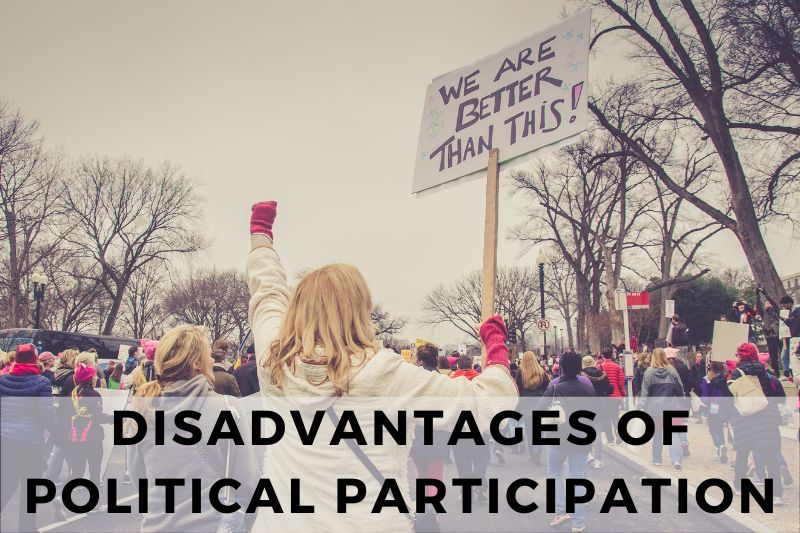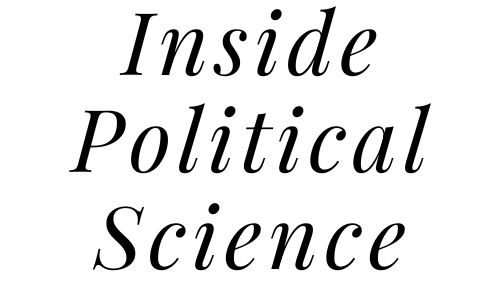
Political participation, often celebrated as a cornerstone of democracy, allows individuals to express their voices and influence governance. However, beneath its promising facade lies a set of challenges that can deter or even harm those who engage in it.
While participation is vital for shaping societies, understanding its potential downsides is equally important. This article delves into the surprising disadvantages of political participation to provide a balanced perspective on this critical democratic activity.
What Is Political Participation?
Political participation refers to the various ways individuals engage in activities aimed at influencing public policies, leadership, or societal decisions. It encompasses a wide range of actions, including voting, attending rallies, joining political discussions, lobbying, and even running for office. Participation can occur at different levels, from local community initiatives to national governance efforts.
While it serves as a key driver for societal change and reflects a population’s democratic engagement, political participation also has its complexities. Understanding these intricacies provides a foundation for exploring its potential drawbacks.
Disadvantages of Political Participation
#1. Polarization and Divisiveness
Political participation, while central to democracy, can contribute significantly to social polarization. As individuals engage in political actions, they often identify with specific ideologies or parties, leading to the creation of ideological echo chambers. These echo chambers reinforce people’s existing beliefs while rejecting opposing views, creating a fragmented society. For example, during the 2016 U.S. Presidential election, political discourse became increasingly polarized, with supporters of Donald Trump and Hillary Clinton often engaging in heated confrontations that extended beyond politics, affecting personal relationships and social dynamics. In such environments, compromise becomes difficult, as each side views the other as an enemy rather than a fellow citizen with differing perspectives.
#2. Disillusionment and Frustration
The cycle of political promises, followed by inaction or minimal change, can breed disillusionment among participants. Voters and activists often invest their time, money, and energy into supporting candidates or causes, expecting substantial reform. However, when promised changes fail to materialize, or when political systems resist significant transformation, these individuals can feel disheartened and frustrated. For example, the frustration experienced by climate activists in response to delayed government action on climate change highlights this phenomenon. Despite years of activism and international pressure, many activists express frustration as promises made by world leaders often fall short of meaningful action, leading to a disengagement from future political efforts.
#3. Exploitation and Manipulation
Political participation is sometimes exploited for the benefit of political elites or powerful groups. Supporters may become pawns in the political game, serving to prop up leaders without seeing any real gains or changes for themselves. In many cases, politicians use populist rhetoric to rally grassroots movements, only to abandon those movements once in power. A prominent example is the use of grassroots support during election campaigns, where politicians promise radical changes to attract voters, only to adopt centrist positions or make deals with corporate interests once they are elected. This manipulation can create a sense of betrayal, as the individuals who worked hardest for the cause see their efforts co-opted by powerful entities that disregard the movement’s original goals.
#4. Inequality in Influence
Not all participants have the same ability to influence political outcomes. Wealthy individuals, corporations, and special interest groups can exert far greater influence over political processes due to their financial resources. Through methods like political donations, lobbying, or even hiring professional consultants, they can sway political decisions in their favor. For instance, in the United States, the influence of Super PACs (Political Action Committees) in presidential elections has raised concerns about the disproportionate power of wealthy donors. These groups can spend unlimited amounts on advertisements and lobbying, overshadowing the voices of ordinary citizens and perpetuating the notion that money, rather than merit or public interest, shapes political outcomes.
#5. Dangers of Misinformation
The rise of digital platforms and social media has facilitated the rapid spread of misinformation, particularly in political contexts. False or misleading information can spread faster than factual content, leading individuals to make decisions based on incorrect assumptions. One of the most notable examples of this occurred during the 2016 U.S. Presidential election, where fake news stories were widely circulated across social media platforms, influencing public opinion. Disinformation campaigns, whether state-sponsored or created by political groups, can skew elections, polarize public sentiment, and distort the political discourse. The consequences of misinformation can be far-reaching, from affecting voting behaviors to inciting violence, as seen in the aftermath of the January 6th Capitol riots, where misinformation about the election results fueled the insurrection.
#6. Security Concerns
Political participation, especially in contentious or highly polarized environments, can expose individuals to personal risks. Activists, protestors, and even voters may face threats to their physical or digital security. In extreme cases, political involvement can result in harassment, surveillance, or violence. For example, political dissidents in authoritarian regimes are often subjected to government surveillance, detention, and even physical harm. In the case of pro-democracy activists in Hong Kong, participants in protests have faced police crackdowns, imprisonment, and intimidation tactics. On the digital front, individuals who engage in online political discourse may also be vulnerable to hacking, doxxing (the publication of private information), and cyberbullying, which can have real-world consequences on their safety and well-being. These security concerns can deter individuals from participating in political activities, fearing personal repercussions for standing up for their beliefs.
Conclusion
While political participation remains a fundamental aspect of democratic societies, it is crucial to acknowledge its inherent disadvantages. From fostering polarization and divisiveness to exposing individuals to manipulation and misinformation, the complexities of engagement in political processes cannot be overlooked.
Additionally, issues like unequal influence, security risks, and growing frustration can undermine the effectiveness and inclusivity of political systems. Understanding these drawbacks is vital for developing more resilient and fair democratic practices that ensure political participation remains an empowering tool for all citizens, without compromising their safety or well-being.
